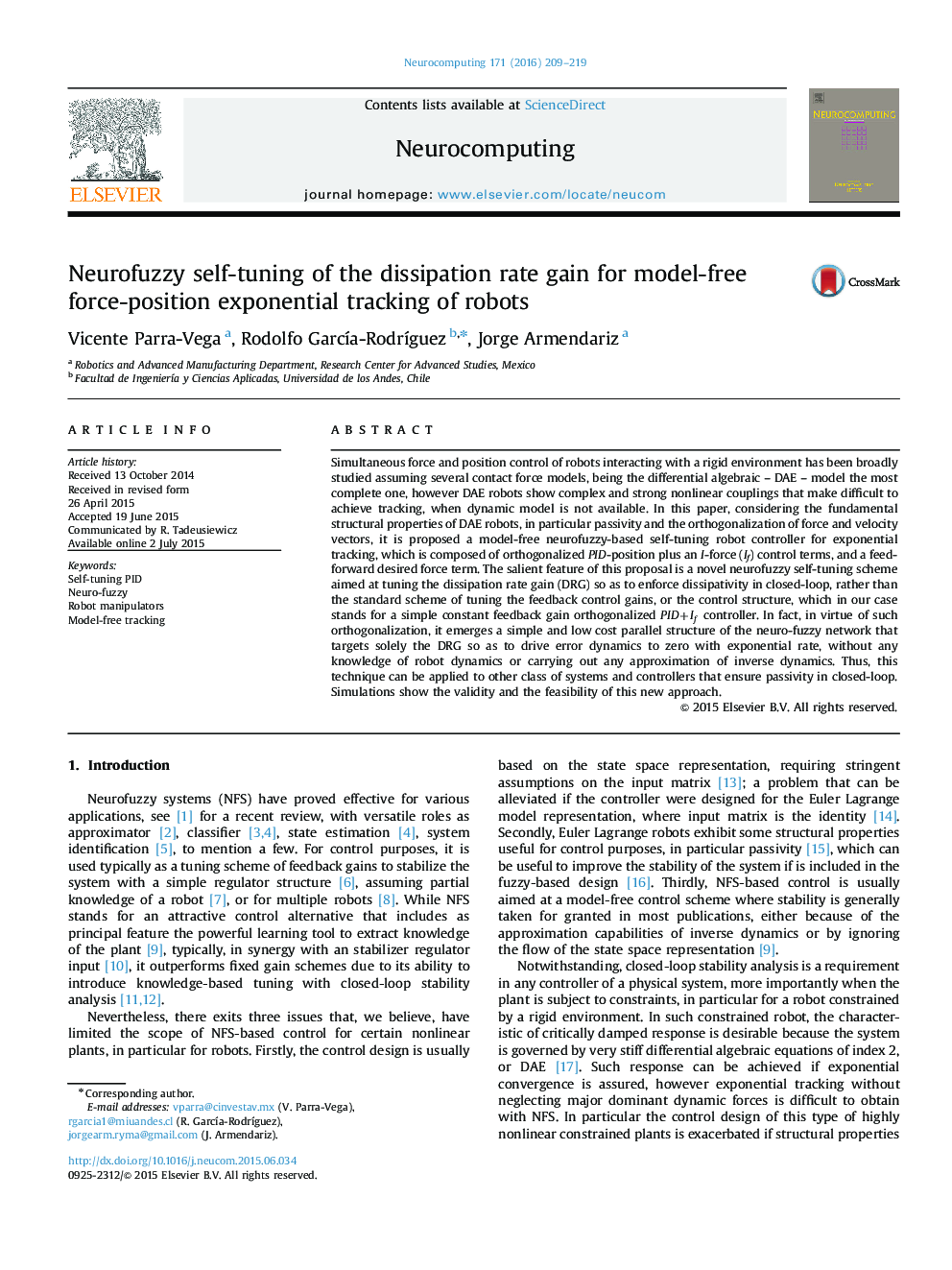| Article ID | Journal | Published Year | Pages | File Type |
|---|---|---|---|---|
| 407398 | Neurocomputing | 2016 | 11 Pages |
Simultaneous force and position control of robots interacting with a rigid environment has been broadly studied assuming several contact force models, being the differential algebraic – DAE – model the most complete one, however DAE robots show complex and strong nonlinear couplings that make difficult to achieve tracking, when dynamic model is not available. In this paper, considering the fundamental structural properties of DAE robots, in particular passivity and the orthogonalization of force and velocity vectors, it is proposed a model-free neurofuzzy-based self-tuning robot controller for exponential tracking, which is composed of orthogonalized PID-position plus an I-force (If) control terms, and a feed-forward desired force term. The salient feature of this proposal is a novel neurofuzzy self-tuning scheme aimed at tuning the dissipation rate gain (DRG) so as to enforce dissipativity in closed-loop, rather than the standard scheme of tuning the feedback control gains, or the control structure, which in our case stands for a simple constant feedback gain orthogonalized PID+IfPID+If controller. In fact, in virtue of such orthogonalization, it emerges a simple and low cost parallel structure of the neuro-fuzzy network that targets solely the DRG so as to drive error dynamics to zero with exponential rate, without any knowledge of robot dynamics or carrying out any approximation of inverse dynamics. Thus, this technique can be applied to other class of systems and controllers that ensure passivity in closed-loop. Simulations show the validity and the feasibility of this new approach.
